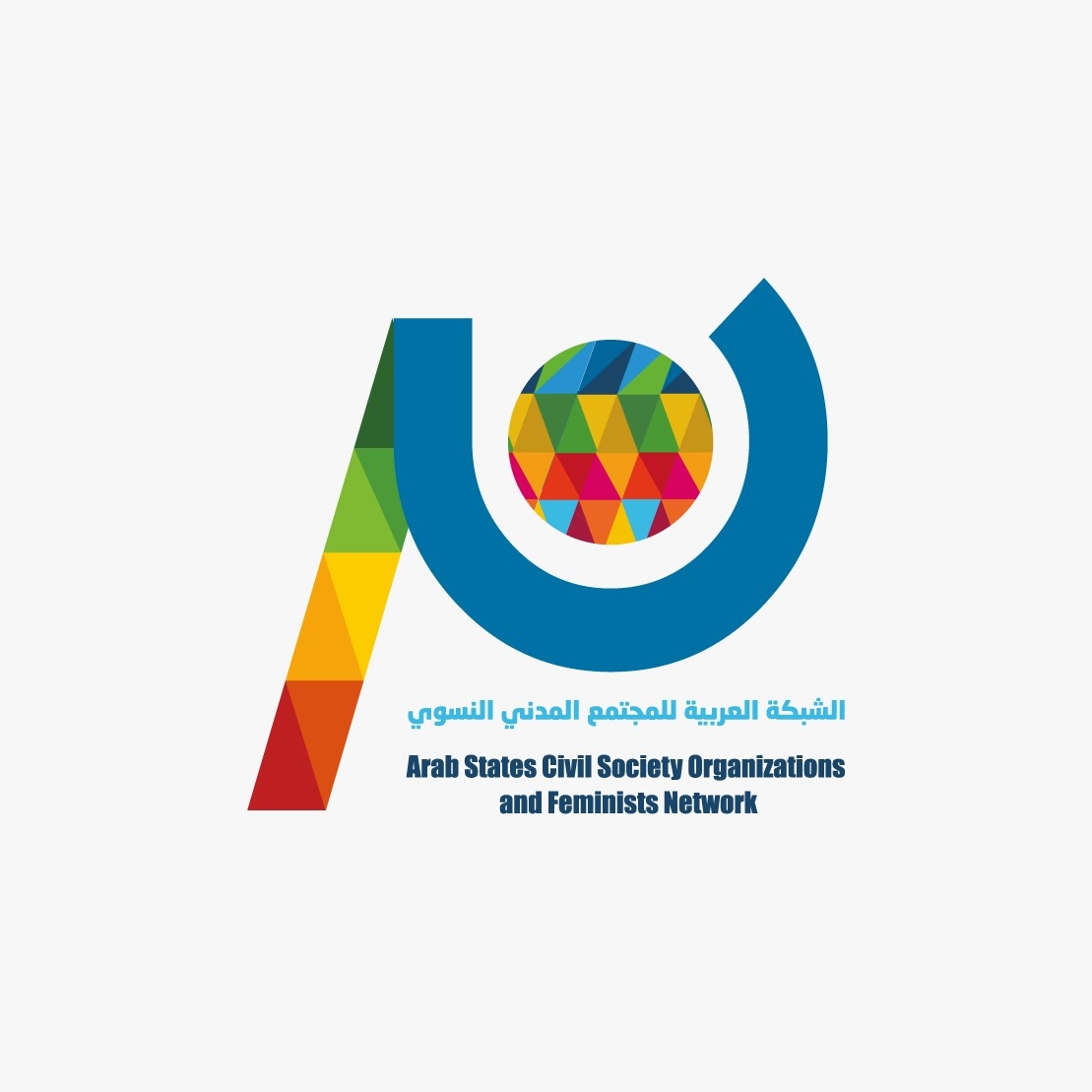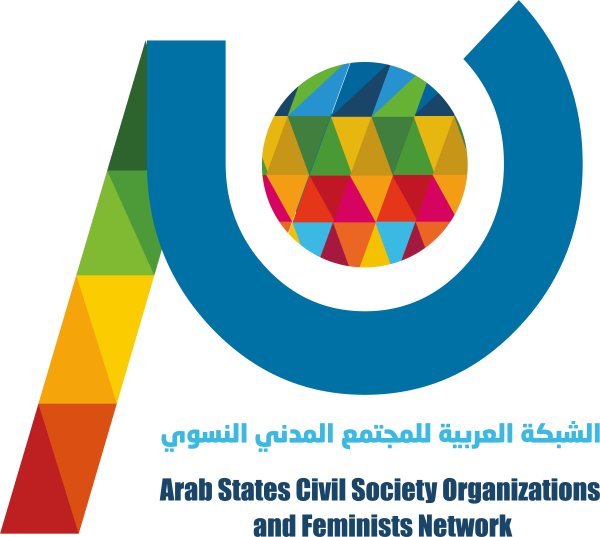Condemnation of Israel’s Use of Lethal Force and Violations of International Humanitarian Law in Occupied Palestine (West Bank and Gaza Strip), Lebanon, and Yemen.
11th October 2024
Statement by the Arab CSOs and Feminist Organizations Network
Condemnation of Israel’s Use of Lethal Force and Violations of International Humanitarian Law in Occupied Palestine (West Bank and Gaza Strip), Lebanon, and Yemen.
As we mark the one-year anniversary of Israel's relentless war and attacks on the West Bank and Gaza Strip, the ongoing impunity and lack of accountability have emboldened Israel to extend its aggressive military operations into Lebanon and Yemen, further exacerbating regional instability and civilian suffering.
We, the signatories of this letter, strongly condemn the ongoing severe international humanitarian law (IHL) violations by Israel on the Gaza Strip, West Bank, Lebanon, and Yemen, amounting to war crimes. The continuation of these attacks without consequence underscores the international community's failure to hold Israel accountable for its violations of international humanitarian law, allowing the cycle of violence and destruction to persist unchecked.
Violations in Lebanon and the Gaza Strip: Use of the White Phosphorus and Depleted Uranium explosives as a War Crime
Israeli forces have illegally deployed white phosphorus munitions as incendiary weapons directly against civilians in heavily residential areas in Lebanon and the Gaza Strip. The deployment of white phosphorus in densely populated civilian areas has led to widespread displacement and environmental devastation. Survivors of these attacks face a lifetime of suffering, as the fragments of the substance can reignite wounds, cause multiple organ failures, and lead to long-term physical disabilities, scarring, psychological trauma, and cause damage long after its initial deployment[1], impacting women and girls disproportionately as they deal with multidimensional insecurities during conflict and inaccessibility to lifesaving services.
Additionally, It found that Depleted Uranium (DU) was used in the attacks in Lebanon. The Lebanese Chemist Syndicate issued a statement warning the people about the impact of health due to the use of Depleted Uranium (DU) explosives by Israel[2]. While DU is not designed to cause fire or incendiary effects like white phosphorus, it can ignite upon impact, generating high temperatures. Depleted Uranium has toxic and radioactive properties, which pose long-term health and environmental risks. Women and girls are disproportionately impacted by DU exposure as it has been linked to reproductive health issues, which can affect women of childbearing age. Additionally, there are concerns about increased rates of miscarriages, stillbirths, and birth defects as well as increased cancer risks, particularly for certain types of cancers that affect women, such as breast cancer, in areas where DU weapons have been used.
A Lebanese woman working with civil society in Beirut provided a chilling testimony: “I am staying with my mom who is in the ICU. In the hospital, we keep the windows open to protect ourselves from glass shattering due to explosions, but we cannot avoid the smoke that burns the eyes and causes breathing problems to us and the patients in critical conditions.”
The use of White Phosphorus and Depleted Uranium (DU) in civilian areas is unlawful and constitutes an indiscriminate attack, violating the core principles of distinction and proportionality under IHL. Israel failed to adhere to the principles of distinction and proportionality, amounting to a war crime and genocide[3].
As of 3rd October 2024, an estimated 2000 people have been killed including 127 children & 73 health workers, 9,384 have been injured[4], and 1.2 million civilians have been displaced since the beginning of the attack on Lebanon[5].
In Gaza, Israel hostilities led to the killing of 41,965 have been killed, including 11,487 women, and 16,927 children[6], with two million of civilians forcefully displaced.
A Palestinian Woman Figure reported that: “After a year of the ongoing war, there are deliberate efforts to forcibly evacuate Palestinians from the northern Gaza Strip localities, aiming at imposing geopolitical facts on the ground. The Occupation is trying to Force majeure demographic change in the Gaza Strip and a step to uproot Palestinians from their land, similar to the 1948 Nakba.”
Violations in Yemen: Impact on Civilians and the Environment
In Yemen, Israeli airstrikes targeted critical infrastructure, including oil tanks and electrical facilities, in the port city of Hudaydah. The attacks carried out on 20th July and 29th of September 2024 resulted in the killing and wounding of civilians[7] [8]. The destruction of essential infrastructure, coupled with fuel shortages and oil spills, has caused irreversible damage to Yemen’s ecosystem and deprived millions of Yemenis of basic necessities such as fuel, clean water, and food.
Hudaydah is one of Yemen’s most densely populated and impoverished regions. It was protected by the 2018 Stockholm Ceasefire Agreement to prevent a humanitarian disaster and ensure the port’s operation, vital for 80% of Yemen's imports. Israeli strikes violate international humanitarian law, which mandates distinguishing between military and civilian targets.
Call to Action to the International Community:
Israel's continued disproportionate attacks on civilians violate the fundamental principles of international humanitarian law and demand urgent global responsible action. The suffering caused by these violations is immeasurable, and it is the responsibility of the international community to hold those responsible accountable and prevent further atrocities. In light of these serious violations, we urge the international community including the UN Security Council, the Human Rights Council, International Criminal Court and the international community to take the following actions:
- Immediate Measures to Impose Ceasefire and Enforce Compliance with International Humanitarian Law: We call on the UNSC to impose sanctions on Israel and exert pressure for an immediate ceasefire, and adherence to its obligations under IHL. Failure to do so should result in concrete international consequences, including the suspension of military aid to Israel.
- Investigate and Hold Israel Accountable: The HRC must establish an independent, impartial investigation into Israel’s IHL violations including the misuse of white phosphorus and depleted uranium weapons and the indiscriminate attacks on civilian targets in the Gaza Strip, Lebanon, and Yemen. These actions constitute clear violations of IHL and amount to war and genocide crimes. The UNSC must ensure that these current IHL violations are referred to the International Criminal Court (ICC) and to ensure territorial jurisdiction over Lebanon and Yemen to the case against Israel to ensure accountability for those responsible.
- Support the role of UNIFIL: The UNSC must evaluate the role of UNIFIL to strengthen their mandate to protect civilians and increase their presence to document IHL violations.
- Ratification of the Rome Statute: We encourage all states, in particular the states located near the conflict regions to ratify the Rome Statute to ensure accountability for perpetrators of international crimes and the people in these regions.
- Prohibit the Use of White Phosphorus and Depleted Uranium: The UNSC should condemn the use of White Phosphorus, Depleted Uranium, and other prohibited chemical weapons in populated areas, ensuring the ban of sale of such weapons to Israel. The UNSC should uphold its obligation to prevent the use of such weapons to be deployed, putting civilian lives at risk.
- Provide Immediate Humanitarian and Environmental Relief: The international community must urgently address the humanitarian and environmental consequences of these violations. A thorough environmental assessment should be conducted to evaluate the damage caused by contamination of toxins and illegal weapons of food and water in the Gaza Strip and Lebanon, and oil spills and air pollution in Yemen, with immediate action taken to restore the environment and alleviate the suffering of affected civilians by providing necessary reparation and compensation.
footnotes:
[1] https://www.youtube.com/watch?v=dEeJcW0Qp1o
[2] https://synchemleb.org/
[3] International law has recorded a prohibition on the use of asphyxiating, poisonous or other gases in armed conflict since 1899, with the adoption of the Hague Declaration concerning asphyxiating gases. The treaty of Versailles, adopted at the end of the First World War, also contained a similar prohibition, as did the Geneva Protocol of 1925, which extended the prohibition to include bacteriological agents. The prohibition against the use of asphyxiating, poisonous or other gases in warfare is also reflected in the 1993 Chemical Weapons Convention (which prohibits all weapons which injure through the use of the asphyxiating, toxic, irritant, paralysing, growth-regulating, anti-lubricating or catalytic properties of a chemical, whether in its solid, liquid or gaseous state). https://casebook.icrc.org/a_to_z/glossary/asphyxiating-poisonous-or-other-gases#:~:text=International%20law%20has%20recorded%20a,Hague%20Declaration%20concerning%20asphyxiating%20gases
[4] https://www.reuters.com/world/middle-east/who-says-28-health-workers-killed-lebanon-over-24-hours-2024-10-03/
[5] https://abcnews.go.com/International/israels-offensive-lebanon-displaced-12-million-prime-minister/story?id=114457624
[6] https://www.pcbs.gov.ps/site/lang__ar/1405/Default.aspx
[7] https://www.aljazeera.com/news/2024/7/30/yemens-hodeidah-port-an-economic-lifeline-now-threatened-by-israel
[8] https://www.reuters.com/world/middle-east/israel-launches-strikes-yemeni-houthi-targets-2024-09-29/








